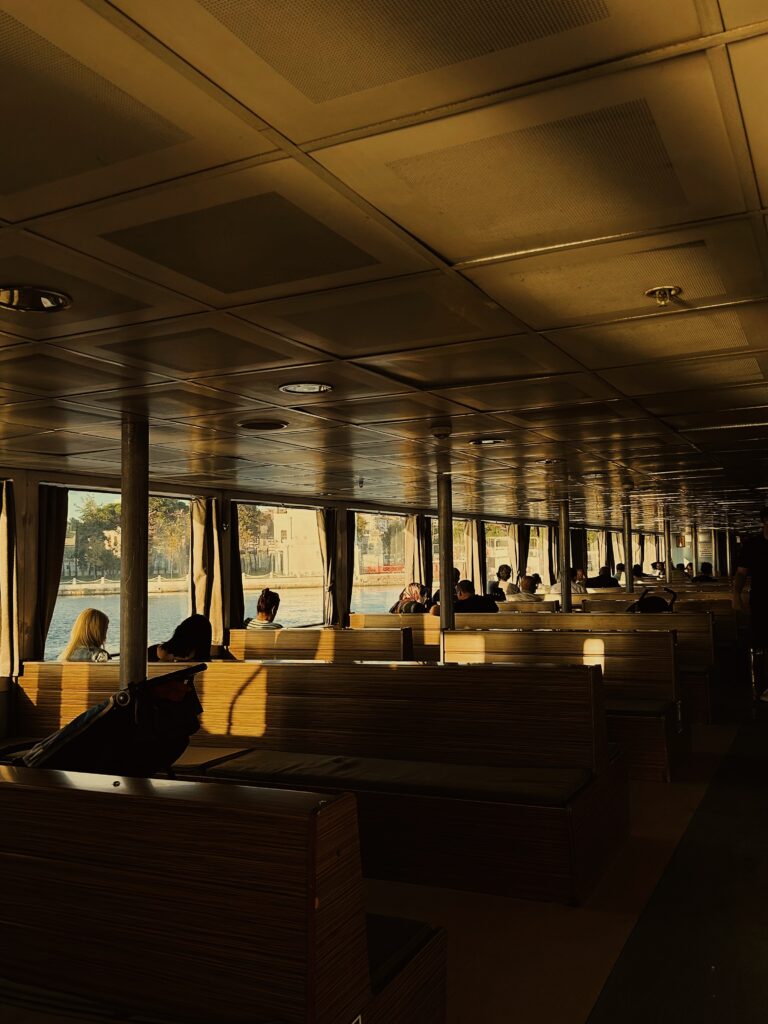In the event of a government shutdown, the travel industry can expect to face significant consequences, with air travel being one of the most affected areas. While travel for Americans may not be heavily impacted, longer wait times at airports, deferred modernization projects, and extended processing times for passports, visas, and Global Entry are all potential outcomes. This could potentially lead to visitors postponing or even canceling their travel plans. Additionally, flight delays and longer screening times are also anticipated if a shutdown occurs. Overall, the shutdown could result in financial losses for the U.S. economy, as well as create operational challenges for essential federal agencies involved in air travel, such as the Transportation Security Administration and the Federal Aviation Administration.

Impact on Air Travel Industry
A government shutdown can have significant consequences for the air travel industry, resulting in various disruptions and challenges. From financial losses to longer wait times at airports, deferred modernization projects, and processing delays for passports, visas, and Global Entry, the effects can be far-reaching. Cancellations or postponements of travel plans, delayed flights, extended screening times, and public perception and fear of travel are additional factors that can impact the industry. Furthermore, if the shutdown extends over the long term, the industry may face even more significant hurdles, including the closure of museums and national parks.
Losses to the Travel Industry
The U.S. Travel Association estimates that the economy could lose approximately $140 million per day during a government shutdown. This considerable loss is partly attributed to longer wait times at airports and deferred modernization projects within the industry. These delays and disruptions contribute to a decrease in travel, as visitors may choose to postpone or cancel their plans altogether. The financial impact on airlines, airports, hotels, and other sectors of the travel industry can be substantial and may take time to recover from.
Longer Wait Times at Airports
One of the immediate effects of a government shutdown on air travel is the potential for longer wait times at airports. With reduced staffing levels and resources, security checkpoints and other airport processes may become slower and more congested. This can lead to frustration for travelers and impact overall customer experience. Longer wait times can also result in missed connections and flight delays, further disrupting travel plans.
Deferred Modernization Projects
During a government shutdown, funding for essential infrastructure projects within the air travel industry may be temporarily halted or delayed. This can impact important initiatives aimed at improving airport facilities, air traffic control systems, and other essential services. Deferred modernization projects can hinder the efficiency and effectiveness of air travel operations, potentially causing further disruptions and long-term challenges.
Processing Times for Passports, Visas, and Global Entry
Government shutdowns can significantly affect processing times for passports, visas, and Global Entry, which are essential for international travel. Reduced staffing levels and resources within the relevant government agencies can lead to delays in obtaining necessary travel documents. This can pose challenges for individuals planning to travel internationally and may result in the need to reschedule or cancel trips.
Cancellation or Postponement of Travel Plans
The uncertainty surrounding a government shutdown can cause individuals to cancel or postpone their travel plans altogether. Concerns about airport delays, disrupted services, and potential inconveniences during the shutdown can lead to a decrease in travel demand. Travelers may opt to alter their itineraries, avoid air travel, or choose alternative modes of transportation. These shifts in consumer behavior can have a significant impact on the air travel industry.
Delayed Flights
Flight delays can become more prevalent during a government shutdown due to reduced staffing levels and potential disruptions in air traffic control operations. Air traffic controllers, considered essential workers, will still be required to work without receiving immediate paychecks. However, the absence of some workers, coupled with existing labor shortages, can lead to delays and disruptions in flight schedules. Travelers may need to adjust their plans and prepare for potential disruptions when choosing to fly during a shutdown.
Extended Screening Times
Airport security screening processes may experience lengthier wait times and delays during a government shutdown. Transportation Security Administration (TSA) staffing levels may be reduced, resulting in longer queues and slower screening procedures. Travelers should anticipate potential delays when going through security checkpoints and plan accordingly to ensure they arrive at the airport with ample time before their flights.
Public Perception and Fear of Travel
Government shutdowns can generate negative public perception and fear of travel due to the potential disruptions and uncertainties they create. A survey conducted by Ipsos and the U.S. Travel Association revealed that 60% of Americans would avoid or cancel air travel during a government shutdown. Fear and concerns about airport delays, security issues, and overall travel inconveniences can significantly impact the demand for air travel and impede the industry’s recovery.
Effects of a Long-term Shutdown
If a government shutdown extends for a prolonged period, the effects on the air travel industry can be even more severe. Continual disruptions, extended financial losses, decreased consumer confidence, and potential closure of businesses within the industry may result in long-lasting consequences. Airline companies, airports, and related service providers may face challenges in recovering from the extended shutdown and regaining travelers’ trust and confidence.
Closure of Museums and National Parks
In addition to the impact on air travel, government shutdowns can also lead to the closure of museums and national parks. Affiliated museums, such as those under the Smithsonian Institution, are typically closed during shutdowns. The operation of national parks during a shutdown is often uncertain and depends on available resources and staffing levels. Past shutdowns have resulted in the closure of national parks, leading to an accumulation of litter, overflowing toilets, and even vandalism. These closures affect tourists’ overall travel experiences and may contribute to negative perceptions of air travel and tourism.
Essential Services
During a government shutdown, certain services within the air travel industry are considered essential and continue to operate. These include agencies and personnel responsible for transportation security, air traffic control, and airport security. While these essential services ensure the continuation of air travel operations, they may still face challenges and labor shortages.
Transportation Security Administration (TSA)
The Transportation Security Administration (TSA) is responsible for airport security screening procedures and ensuring the safety of air travel. Despite a government shutdown, TSA personnel are considered essential and must continue working to maintain security measures at airports. However, reduced staffing levels and potential financial hardships for TSA workers can create operational challenges and longer wait times at security checkpoints.
Federal Aviation Administration (FAA)
The Federal Aviation Administration (FAA) plays a crucial role in regulating and overseeing civil aviation within the United States. During a government shutdown, the FAA is also deemed an essential service and continues to provide critical functions such as air traffic control services. However, the FAA may experience labor shortages and challenges due to reduced staffing levels and potential absences of workers during a shutdown.
Airport Security Workers
Airport security workers, including personnel from private security companies, are considered essential during a government shutdown. Their presence ensures the safety and security of passengers and airport facilities. However, reduced staffing levels and potential financial hardships for these workers can impact operational efficiency and increase the time required for security screenings.
Air Traffic Controllers
Air traffic controllers are essential to maintaining the safety and efficiency of air travel. Their role involves directing aircraft and ensuring safe separation and efficient flow in the skies and at airports. Although air traffic controllers are considered essential, staffing challenges and potential absences during a government shutdown can lead to delays and disruptions in flight schedules. Labor shortages within the air traffic control sector have already been a concern, and a shutdown could exacerbate these issues.
Potential Challenges and Labor Shortages
A government shutdown can exacerbate existing challenges and labor shortages within the air travel industry. The Transportation Security Administration and the Federal Aviation Administration have already experienced staffing difficulties during the COVID-19 pandemic. A prolonged shutdown can further compound these challenges, potentially leading to decreased operational efficiency, longer wait times, and increased flight delays. The recruitment and training of new personnel may also be hampered, hindering the industry’s ability to address existing labor shortages.

Past Shutdown Impact
Government shutdowns in the past have demonstrated how they can significantly impact the air travel industry, leading to various disruptions and challenges. Understanding the consequences of previous shutdowns can provide insight into how the industry may be affected during future shutdowns.
Shutdown in 2019
During the government shutdown in 2019, the air travel industry experienced notable disruptions. Ten air traffic controllers called in sick, resulting in a temporary shutdown at LaGuardia Airport (LGA) and delays at airports in Philadelphia, Newark, and Atlanta. The impacts on air travel quickly became apparent, highlighting the vulnerability of the industry during a shutdown.
Temporary Shutdown at LaGuardia Airport (LGA)
Due to the absence of air traffic controllers during the 2019 government shutdown, LaGuardia Airport experienced a temporary shutdown. The closure disrupted flights and caused delays not only at LaGuardia but also at other airports connected to the national airspace system. This incident demonstrated the immediate and significant impact that a government shutdown can have on air travel operations.
Air Traffic Control Delays
Past government shutdowns have highlighted the vulnerability of air traffic control operations during these periods. Reduced staffing levels and potential absences of air traffic controllers can result in delays and disruptions in flight schedules. These delays can extend to other airports connected to the national airspace system, causing a ripple effect throughout the industry.
Impact on FAA Training and Hiring
Government shutdowns can have a direct impact on the Federal Aviation Administration’s (FAA) ability to train and hire new air traffic controllers. The shutdowns disrupt the training pipeline and impede progress in addressing existing labor shortages within the industry. The FAA’s goal of hiring new air traffic controllers may be hampered if a government shutdown halts training programs and recruitment efforts.
FAA Authorization
The Federal Aviation Administration’s (FAA) authorization is a critical component for the functioning of the air travel industry. However, the expiration of FAA authorization, coupled with a government shutdown, can create additional challenges and uncertainties.
Authorization Expiration
The FAA’s authorization is subject to expiration, requiring Congress to pass a reauthorization bill to ensure the continuation of essential functions within the agency. If a government shutdown coincides with the expiration of FAA authorization, the industry may face additional disruptions and uncertainties. The lack of a reauthorization bill can add to the challenges already faced by the FAA, potentially hindering its ability to address labor shortages and implement necessary improvements.
Temporary Extension of FAA Programs
To mitigate the potential chaos at the FAA during a government shutdown, Congress may need to pass a temporary extension of FAA programs. This measure would ensure the continuity of critical functions within the agency and help alleviate potential disruptions in air travel operations. Without such an extension, the FAA’s existing challenges, including labor shortages and operational inefficiencies, could exacerbate during a shutdown.
Impact on Airport Construction
Government shutdowns can have an indirect impact on airport construction projects. The delay or halt of essential services and funding during a shutdown can result in delays and setbacks for ongoing infrastructure projects at airports. Disruptions in construction timelines can further impede the industry’s ability to enhance facilities, improve services, and address long-term growth and development needs.

Government Shutdown Compromise
The uncertainty surrounding a government shutdown can create challenges for travelers as they anticipate potential disruptions and inconveniences. The lack of a last-minute compromise between Congress and the government can lead to significant ripple effects in the air travel industry.
Uncertainty of a Last-minute Compromise
A government shutdown often unfolds with uncertainty regarding a potential last-minute compromise. As the deadline approaches, the lack of resolution within Congress and negotiations with the government can contribute to heightened anxiety and concerns among travelers. The uncertainty surrounding the potential impacts of a shutdown on air travel can lead individuals to alter their plans, contributing to an overall decrease in travel demand.
Ripple Effects on Travelers
If a government shutdown occurs, the ripple effects on travelers can be extensive. From longer wait times at airports and potential flight delays to processing delays for travel documents, travelers may face a range of disruptions and challenges. The fear or reluctance to travel during a shutdown can also impact the industry, contributing to decreased travel demand and potential financial losses for airlines, airports, and related service providers.
Conclusion
A government shutdown has the potential to significantly impact the air travel industry, causing financial losses, longer wait times at airports, deferred modernization projects, and processing delays for travel documents. Travelers may experience disrupted plans, flight delays, extended screening times, and concerns about public perception and fear of travel. Labor shortages and challenges faced by essential services, including the TSA and FAA, can further exacerbate these disruptions. Past shutdowns have demonstrated the vulnerabilities of the industry during such periods, with impacts ranging from temporary airport closures to delays in air traffic control operations and hiring of new personnel. The expiration of FAA authorization and the uncertainty of a last-minute compromise can create additional challenges and uncertainties. By understanding the potential consequences of a government shutdown, both the industry and travelers can better prepare and adapt to minimize disruptions and ensure the smooth functioning of air travel operations.
